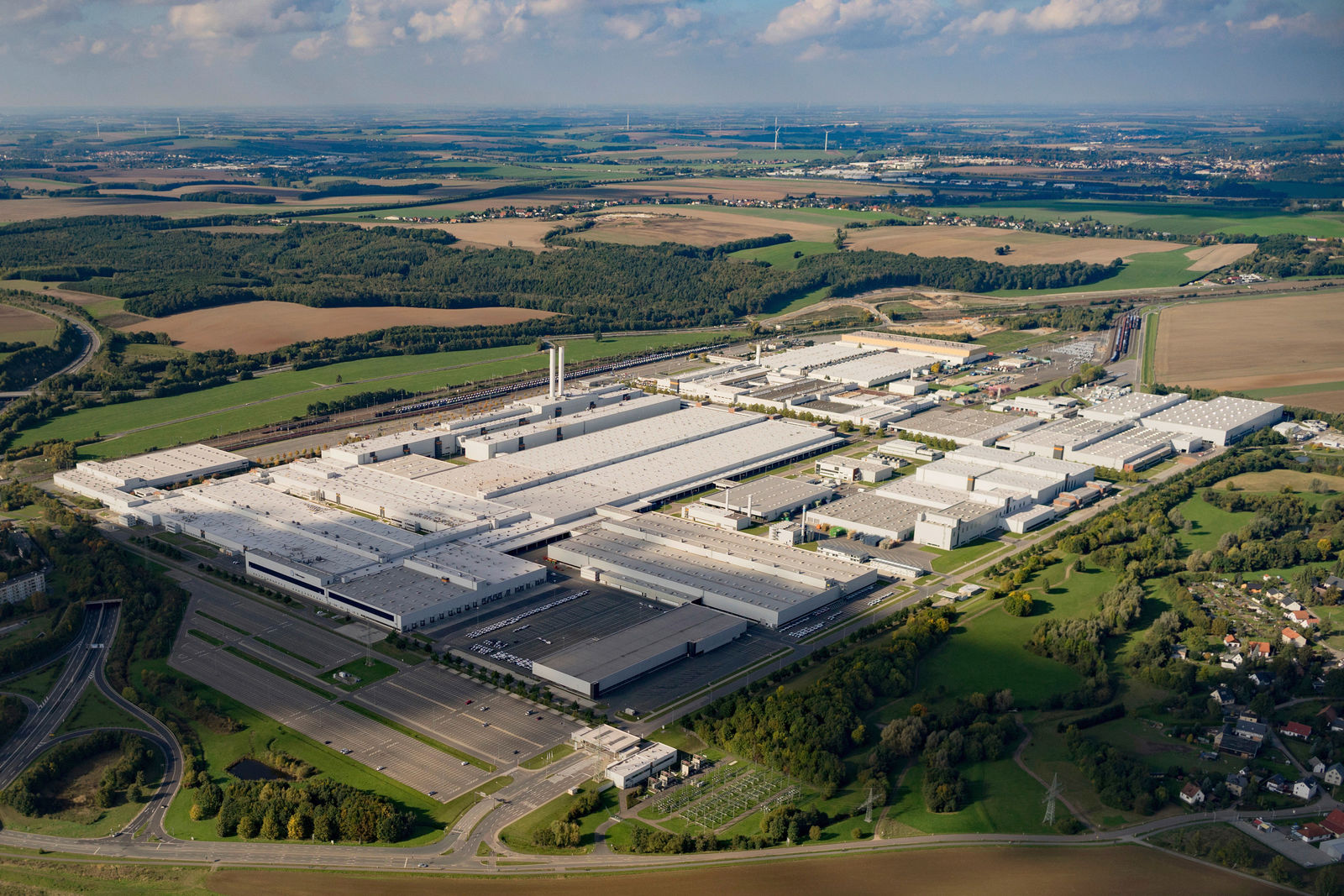Europe’s largest electric car plant. The Zwickau plant is a key element in the most comprehensive electric offensive in the automotive industry. Volkswagen is the very first volume automaker to entirely convert a large vehicle plant from 100 percent internal combustion engines to 100 percent e-mobility. All in all, Volkswagen is investing about €1.2 billion in the conversion of this location. In the final expansion stage from 2021, up to 330,000 electric vehicles per year will roll off the production lines here, some 30,000 vehicles more than previously. Zwickau will therefore be Europe’s largest and most efficient electric car plant.
The ID.3 “made in Zwickau” will also make a significant contribution to climate protection. It will not only operate with zero local emissions but will also be produced with a neutral carbon balance. This will make the ID. 3 a trailblazer on the road to clean, sustainable mobility.
Sustainable production. The ID.3 is the first vehicle from Volkswagen that has been consistently designed for a neutral carbon balance over the entire value stream and is handed over to customers with a neutral carbon footprint. Our principle is first to avoid and then to reduce CO2 emissions; any unavoidable emissions are offset by investments in climate protection projects.
All power purchased by the Zwickau plant from external suppliers is Volkswagen Naturstrom from renewable sources. Furthermore, the plant is equipped with a high-efficiency cogeneration plant for the combined generation of electric power and heat which is to be operated using carbon-neutral gas in the future. The buildings and equipment are subject to a continuous energy optimization process, for example involving the use of frequency-controlled fans and pumps. This approach continually reduces power, water and heat demand.
100 percent eco-power is also used for energy-intensive battery cell production. Emissions from the entire production process that are currently unavoidable are offset, among other things through support for the recognized “Katingan Mataya Forest Protection” climate protection project on the Indonesian island of Borneo.
Transformation during normal operation. The Zwickau plant is being transformed during normal operation. In parallel to the development of ID. production, the manufacture of the Golf Variant is to continue until mid-2020. Following an intensive planning phase, the first production line was converted from summer 2018 onwards. This project called for the comprehensive modernization and refurbishment of the body shop, paint shop, assembly line and infrastructure. The entire conveyor technology had to be prepared for electric cars.
Following the production start of the ID. 3 as scheduled, the second production line is to be converted using the same approach and commissioned at the end of 2020. In the final expansion stage from 2021, the employees at Zwickau are to produce six models for three Group brands (Volkswagen, Audi and SEAT). The maximum capacity of the plant will then rise from the previous figure of 1,350 to 1,500 vehicles per day. 50 partner companies are providing support for the conversion of the plant. Much of the existing equipment is to be reused – also at other Group plants. A total of 12 new buildings and building sections are being built at the plant site. The existing press shop is being extended and prepared for the new era; this part of the project alone calls for an investment of about €75 million. From 2021, Zwickau will therefore produce all the key body parts for the modular electric drive toolkit (MEB) itself on site.
High-tech plant. In the course of the conversion, the Zwickau plant will become a digital, flexible, high-tech factory that is highly efficient. Digitalization will affect all areas of production, although to a different extent. While body production and painting were already highly automated in the past, the degree of automation in vehicle assembly is now also being boosted.
Volkswagen is consistently opting for highly-advanced Industry 4.0 robots and is extending the use of human-robot cooperation. The equipment includes about 1,700 latest-generation production robots as well as more than 500 driverless transport systems for the fully autonomous delivery of parts to the production line. Going forward, the cockpit will be installed fully automatically as a complete module using an industrial robot, for example.
In addition to shorter process times, automation also brings benefits for the workforce. Human-robot cooperation will reduce the burden on the human workforce of physically demanding, unergonomic tasks, for example in the installation of the roof liner. An increasing degree of automation will also boost production capacity; as a result, the number of employees will in the final resort remain stable.
Worldwide MEB production. Zwickau marks the start of the transformation of Volkswagen production to e-mobility. In future, Volkswagen will make electric cars at 8 MEB plants on three continents – in Europe, Asia and North America. Together, these plants will form the world’s largest electric car production network.
In Germany, Zwickau is the first plant to be converted and the Emden and Hanover plants are to be changed over to the high-volume production of MEB-based electric cars a little later. In China, two MEB plants which are to start production in 2020 are being built in Anting/ Shanghai and Foshan. In North America, Volkswagen is investing about US$800 million in the future production of electric cars at its Chattanooga plant. All these facilities will benefit from the experience and know-how of the team at Zwickau.
